
I loved these recent profile of Google Reviews written by Will McCarthy and hope you do too.
These were my favorite sentences: “Google Reviews is like having millions of friends around the world who can give you a reliable recommendation on literally anything… I have lived, these reviews say, I have fought and struggled and cried in the face of beauty. I have felt pain, and I have been to Taco Bell and it was only average.”
See also: One-star reviews of National Parks

As a long-time tech journalist, I’ve noticed an interesting trend over the years. Companies who aren’t really tech companies will call themselves that anyway.
This is because “tech” is a lot like “new,” “free,” or “sale.” These words get people’s attention. So a lot of companies say they’re “tech” for the free publicity.
One such company is WeWork, a real-estate company that leases short and long-term office space stocked with free beer, cool lighting, and a community-for-hire for remote workers like myself. Continue reading…
Smartphones have gotten ridiculously expensive. In the last couple of years alone, premium handsets have nearly doubled in price to over $1000. It’s enough to make even the most loyal iPhone fans switch to better value Android phones or upgrade to older but cheaper models instead.
Two new smartphones released this summer are bucking the trend, however. My favorite is the $400 Google Pixel 3a (pictured right). Its camera is not only stunning, but the best of any price range (really!). It has a gorgeous OLED screen, a battery that lasts for days, and a headphone jack. My only quibble is it’s a tad tall and not waterproof.
If you want the fastest phone on the market with the nicest screen and an equally good 4k camera, the OnePlus 7 Pro (pictured left) is also fantastic. Although a little big for my pockets, it’s loaded with a nifty notchless screen and software features that outpace nicer Google or Samsung phones. In short, the OnePlus 7 Pro is basically $1000 phone for less than $700.
Granted, the pesky green text messages of both aren’t as reliable or as good as Apple’s best-in-class iMessage. But outside of that, both come highly recommended with unlimited free photo storage.
Rating: 4.5 out of 5 stars
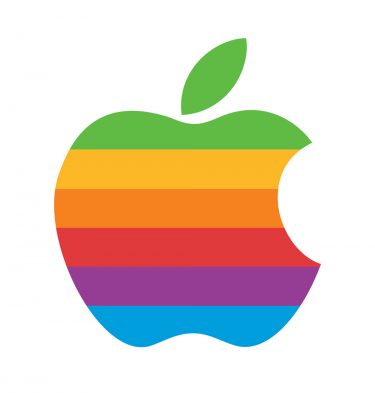 “The reality is that calling a business a ‘tech company’ is a ploy to make it sound exciting to potential consumers and investors, not a method of assigning greater meaning,” aruges David Yanofsky for Quartz. “The moniker says nothing about what type of company it actually is, only that it is a business that uses at least one technology to provide its product or service.”
“The reality is that calling a business a ‘tech company’ is a ploy to make it sound exciting to potential consumers and investors, not a method of assigning greater meaning,” aruges David Yanofsky for Quartz. “The moniker says nothing about what type of company it actually is, only that it is a business that uses at least one technology to provide its product or service.”
He goes on, “The era of tech companies is over. To stay competitive in today’s marketplaces, every company, by the current standard, could be called a tech company, which of course, is another way of saying that none of them should be.”
Nailed it.
 For one reason or another—both personally and professionally—these companies can do almost no wrong in my eyes:
For one reason or another—both personally and professionally—these companies can do almost no wrong in my eyes:
- Dell. I built my first computer as a freshman in high school. Overclocked it, modified it, loved it. Later on, I built several more for family members. And then made-to-order Dell took over the world by the late ’90s. I enthusiastically appreciated their customization, affordability, and no-nonsense style. A decade later, Dell officials hired me as a contract writer for three consecutive years. That engagement largely paid for the downpayment on my first and only house. Although they’ve changed significantly since the ’90s and I now compute on a Macintosh, I still admire them. Continue reading…
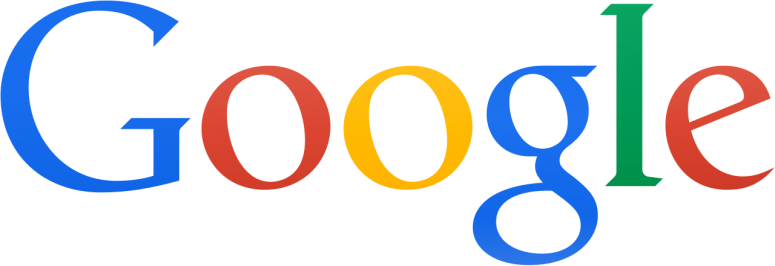
I was solicited for a job at Google last month by their HR department. I turned them down. Here’s why: Continue reading…
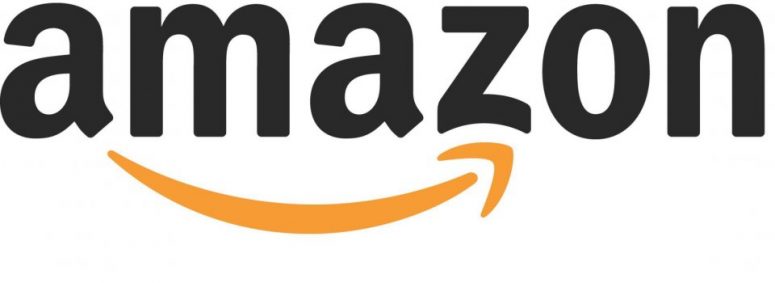
I’m an enthusiastic Amazon, Apple, Uber, and Google user because they make my life easier. I don’t think twice before upping my Prime membership. In fact, I like these companies so much, I’ve even willing to pay a little extra for the convenience they offer.
But obsessive brand loyalty will ultimately hurt us, argue two ivy-league economists for USA Today. “Each of us can do our part to make sure Amazon and others never get to the point of ubiquitous domination. It might introduce a bit of hassle and inconvenience into your life, but only a tiny bit. But by taking on this challenge, you’ll be doing the job that antitrust authorities, in an ideal world, might take care of on our behalf – ensuring that consumers and workers, rather than the owners of capital and algorithms – get a piece of the surplus that’s created by new business ideas.”
Make no mistake, I’m a proud American capitalist. But I like it even more when companies compete for my business. “Think about those credit card teasers we all get,” the authors add. “As long as we keep businesses thinking they need to chase after us to try to lock us in, they’ll keep on handing us value rather than using it to pad their bottom line.”
If you agree, consider shopping with competing companies and platforms from time to time to keep your favorite companies on their toes, hungry for your business, and willing to let you keep a greater share of the value.
 My latest, reporting for Paste Magazine:
My latest, reporting for Paste Magazine:
“Obviously, user review repositories such as TripAdvisor, Yelp, and Google are a net gain for people in need of lodging, a delicious meal, or a new tool, gadget, or surprise to solve their current problem. But as we increasingly turn to big, crowd-funded data to help us stay informed and avoid buyer’s remorse, we need to be thinking of better ways to get the most up-to-date and accurate information available while also rewarding the efforts of those who aim to please us.”
Continue reading…

courtesy Google
Although the technology is “95% ready for mainstream use,” the home stretch will likely require another decade of coding, insiders say. Reporting for Paste Magazine…

Andrew White/WIRED
Ev Williams believes the internet is “a giant machine designed to give people what they want.” In a speech reported by Wired, the co-inventor of Blogger and Twitter added, “We often think the internet enables us to do new things, but people just want to do the same things.”
For instance, we want to socialize, entertain ourselves, learn, and make work easier. The internet does all four better than any other convenience of the last century.
It does this in two ways, Williams explains. “Big hits on the internet (think Google, Facebook, Apple, Amazon) are masters at making things fast and not making people think… But the internet is not a utopian world. It’s like a lot of other technological revolutions.” Continue reading…

Some small search-outfit announced today that they’re bringing Google Fiber to Provo later this year, pending the city’s no-brainer approval next week.
This is really great news for my home town. It means free 5 mbps internet for every household, free 1000 mbps Internet for 25 public institutions, and $70/mo. 1000 mbps Internet for anyone who wants it. For reference, I pay $50/mo. for 15-20 mbps from Comcast. From a math perspective, we see that 1000 is a lot better than 15-20.
From a consumer perspective, it’s the most coveted internet in the nation. Provo will be just the third U.S. city to offer Google Fiber, in addition to Kansas City and Austin, Texas.
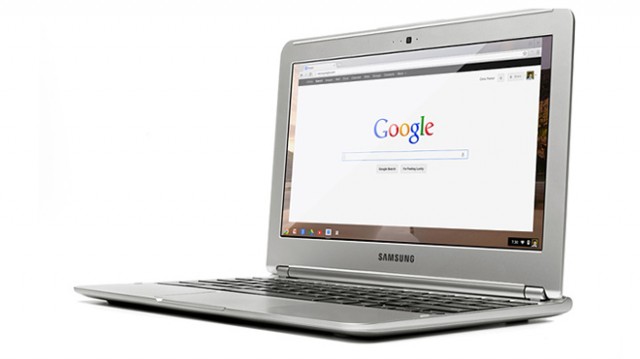
Reporting for Fair & Balanced. 🙂
Thanks to cut-rate pricing and high user praise, Google?’s new Chromebooks have finally struck a nerve with savvy consumers. But they may go unnoticed this holiday as tablets still dominate wishlists. Continue reading…
[youtube]http://www.youtube.com/watch?v=bC303x2XqWw[/youtube]
Over the last year, my wife and I have really enjoyed our Samsung Chromebook. In terms of quickness, it’s like buying a web-only Macbook Air for under $500. We reach for it often — more than conventional laptops, as much as our iPad.
With the above announcement, I’ll probably reach for it even more once the refresh becomes available in April. For $400, you get an aluminum case with a faster processor and DVI out for streaming stuff to TV. There’s also a Chromebox version for computer labs and corporate minions.
Should be fun to see if Google can get more traction with these—I think they’re a great computing companion device.
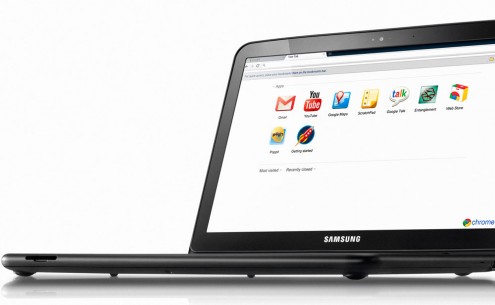
Because that’s what you get when you buy a Samsung Wi-Fi Chromebook.
Admittedly, it’s not a perfect analogy. The Macbook Air is skinnier in the front and capable of 1080p playback, whereas the Samsung Chromebook can only render 720p HD. The former is also made of industrial titanium, whereas the latter uses high-end Macbook-like plastic. And in terms of startup and resume times, the Chromebook is faster—near instantaneous. Continue reading…

From one of the most brilliant minds of our time comes…
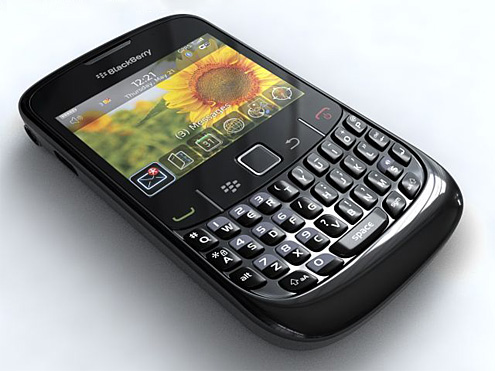
… on the impending irrelevance of Blackberry. This coming from a six-year Blackberry user (but I’m in the minority, and only use it for texting and voice calls now — no portable apps or Internet for me).
In other words, I use a dumbed down smartphone, so I’m not a target candidate.
[youtube]http://www.youtube.com/watch?v=TVqe8ieqz10&feature=player_embedded[/youtube]
The video could use a little editing, but it does an effective job in selling Google’s version of cloud computing. So much, in fact, I predict these “computer-like objects” will be a lot more relevant than tablets, but only if they come down in price. The reported $350-500 launch models, available June 15, are too much.
See also: My Chromebook is a fast tablet with a faster keyboard
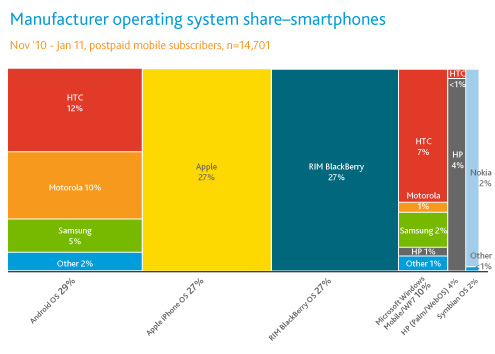
Source: Nielsen
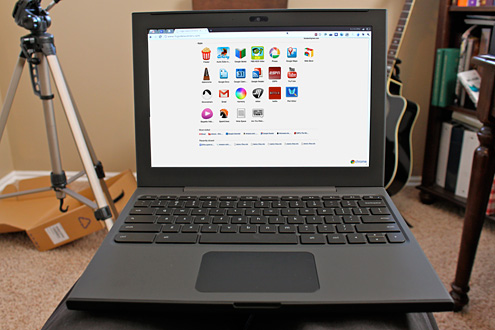
I’ve been using Google’s new Chromebook for over a month now. I use it a lot, often times reaching for it over my Macbook.
Why? It starts and stops faster. In a single second even. It connects to the internet faster. In seconds, mind you. The thing is quick and lightweight. Much like a tablet computer or iPad.
Better still, the Chromebook has a full-size but no-nonsense keyboard, making it the faster and better input device when compared to tablets. And it has a lot more “apps” than closed-system tablets.
Admittedly, the trackpad is finicky. But overall, I’m very impressed with the Chromebook, especially as it’s replaced some of the functions I used to prefer on either my desktop or laptop. It might be the best living-room laptop ever made. And it’s a great travel option as well.
If manufacturers price this thing under $300, I think it will make significant waves in the computing world upon release this summer.
[youtube]http://www.youtube.com/watch?v=vFeD3qGVsrM[/youtube]
I watched the Google Chrome OS demo today and came away impressed. The product won’t meet the need of power-users, producers, and mult-media creators. But for everyone else, including power-users when they don’t need extra power, Chrome OS is the first legitimate consumer rival for both Macintosh and Windows I’ve ever seen. Much more so than Linux ever was (at least in a consumer sense).
Some highlights about Chrome OS, which has a planned release of “mid-2011” in select Acer and Samsung laptops:
- “Nothing but the Web.”
- Chrome OS features a fast and simple setup process, remarkably fast boot times and an instant resume feature to minimize wait time when the OS wakes from sleep.
- Unified experience across Chrome on netbooks, desktops and more.
- Multiple user support and guest mode — everything a user does in guest mode is private and history is deleted instantly when a session is ended.
- Verizon Wireless cellular data connectivity (international options are available as well) in every Chrome OS notebook/netbook — no contracts, no activation fees and monthly plans starting at $9.99.
- Updates are seamless — no user operations are required to update the OS or apps.
- Most secure OS in the world — security is a major focus of Chrome OS; all Chrome OS data is encrypted by default.
- Verified boot — core OS components are in firmware that cannot be modified.
- Enterprise options — Google is working closely with partners like Citrix to ensure the enterprise market is addressed.
- Google’s Chrome OS PCs get faster over time, not slower like other PCs.
- Initial manufacturing partners include Acer, Samsung and Intel.
Will Chrome OS overtake the world? No. But I could see it becoming as ubiquitous as Google’s own Gmail, if not bigger. Which is huge.
In other words, watch this space. Desktop computing is about to change. If only in how we store an access many of our files.
See also: Will Google Chrome OS change computers?
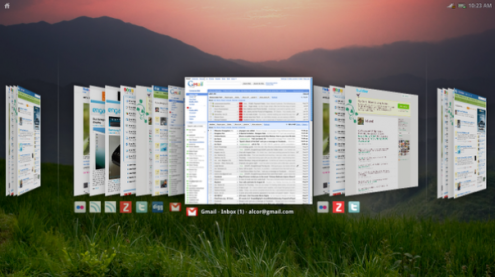
Go read my Fox & Friends story to find out.
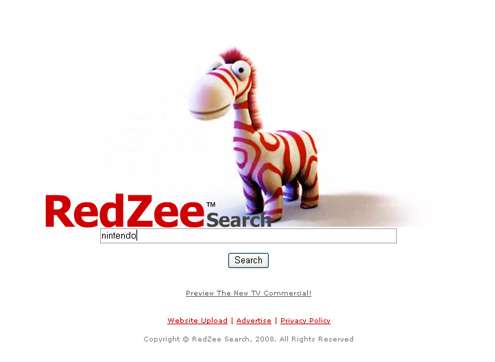
When will software executives finally learn that speed of functionality will always trump bells and whistles. You’d think RedZee and SearchMe would already know this after the “we’ve got more glitz” Ask.com called it quits last week.
Build a better mouse trap, people — not a sexier one. Google is number one because it returns relevant results faster than others. It takes a lot more than good looks to be “cool.”
[youtube]http://www.youtube.com/watch?v=fPgV6-gnQaE[/youtube]
[via email. thanks, brooks!]
Ars Technica reports: “A new UK report on the habits of the ‘Google Generation’ finds that kids born since 1993 aren’t quite the Internet super-sleuths they’re sometimes made out to be. For instance, are teens better with technology than older adults? Perhaps, but they also ‘tend to use much simpler applications and fewer facilities than many imagine.'”
A Digg user responds: “Quite true — my youngest brother (14) is constantly asking me how to do this or that on his computer. Usually it’s quite simple, and the first thing I ask him is if he Googled it first. The answer is invariably ‘no.’ Kids are lazy, no matter when they were born.”
Google has released an updated version of Google Maps Mobile (2.0) that includes a “my location” feature in addition to the proven mapping goodness. The jerry rig GPS uses cell towers to approximate your positioning. I tried it on my Blackberry, and it was eight blocks off from my actual position — but still pretty good for my general vicinity. You’d be screwed in areas with zero cell phone service, but cool nonetheless. Here’s hoping accuracy increases once the application leaves beta.
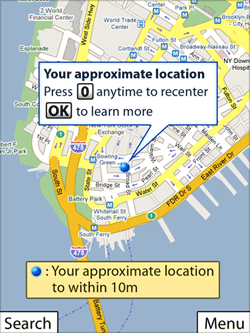 Photo credit: GigaOm
Photo credit: GigaOm
I loves me some FireFox tabed browsing. I frequently use tabs as ad-hoc bookmarks while holding control + clicking to open a new page for later review. To that end, here are the tabs I have open religiously, usually in this order:
-
Gmail. The epicenter of my web efforts. Work. Play. Personal. Planning. Notes. Scheduling. You name it, I’m doing it here. It’s funny ’cause I encourage everyone to email me first because it has a higher priority for me than other communication methods such as phone or voicemail, and it documents everything to boot! It’s funny, ’cause while other people use “just email me” as a brush off, I’m genuinely sincere from a productivity and response perspective. Asynchronous communication for the win! (Side note: I don’t and haven’t used Microsoft Office for over a year now minus a handful of rare, quick occasions. I use Gmail for all that now.)
-
Bloglines. Information overload and feed reading goes here. I live in this thing too, probably too much and periodically close the tab for productivity’s sake.
-
Thesaurus. This goes hand-in-hand with its dictionary counterpart and is a must have for aspiring writers like “mua” and lovers of the English language. It’s like a writers inventory: the only thing he sells is words.
-
Blogger, Blogsmith (non-public). The two most widely used blog publishing platforms that I use daily. Griffio customizes WordPress installations, however, as a nifty publishing/CMS software for our clients as well. So I’m in those a lot too. Mmm… Blogging and self-publishing for the win!
-
Wikipedia. This bad boy has stolen about 50% of my research traffic that formally went to Google. It’s quicker, faster, leverages the masses for balanced/non-bias information without all the ads. Even better relevancy than Google now. I could live on this site all day long if I had to.
-
Google SERPS. Yup, I still use the mother of all search despite my critiques of it. I use the engine for info discovery and Google images to accompany my blogging.
You will then see the rest of the tabs filled with upwards of 10-15 web pages I intend to check out later in the short-term. If I don’t get around to them, they get bookmarked and tagged in my Delicious account. Other notable tabs I consistently have open include websites I’m working on, Site Meter for traffic tracking, Delicious, Digg, and Flickr to name a few. I’m an internet junkie and would royally be out of a job if I were at this stage in my career 15 years ago when the web was non-existent. What tabs do you rock on a consistent basis?



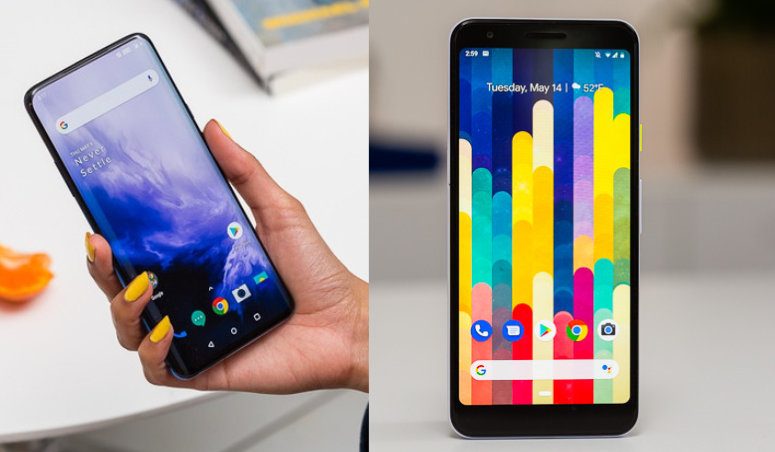
 “The reality is that calling a business a ‘tech company’ is a ploy to make it sound exciting to potential consumers and investors, not a method of assigning greater meaning,” aruges David Yanofsky
“The reality is that calling a business a ‘tech company’ is a ploy to make it sound exciting to potential consumers and investors, not a method of assigning greater meaning,” aruges David Yanofsky  For one reason or another—both personally and professionally—these companies can do almost no wrong in my eyes:
For one reason or another—both personally and professionally—these companies can do almost no wrong in my eyes:

 My latest, reporting for Paste Magazine:
My latest, reporting for Paste Magazine:




 From one of the most brilliant minds of our time comes…
From one of the most brilliant minds of our time comes…




 Photo credit:
Photo credit: